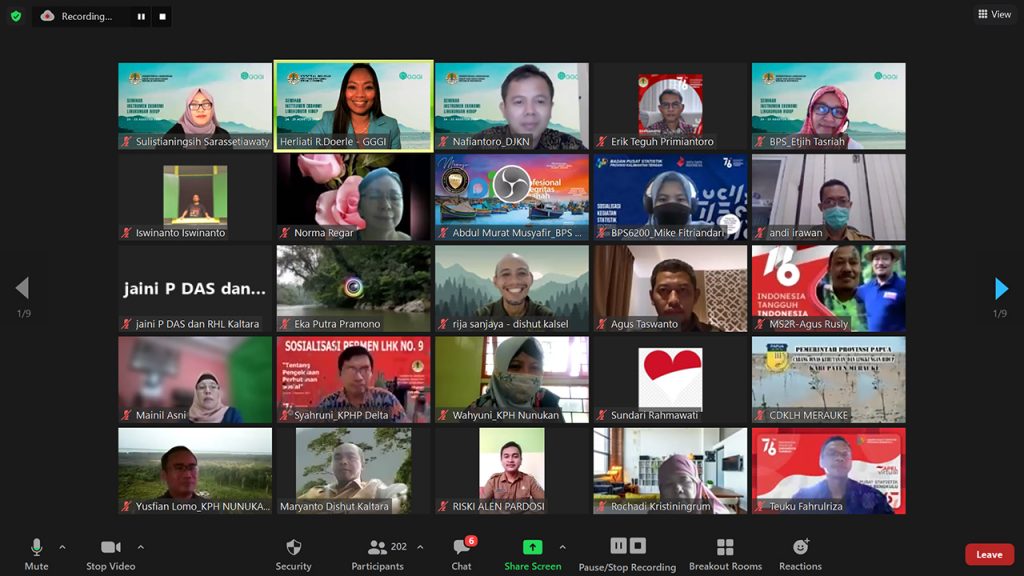The Environmental Economic Instrument is an effort to control and preserve the environment and to support the commitment of low GHG emissions development. To introduce its concept, context and implementation mechanism, GGGI organized and facilitated an online seminar on Environmental Economic Instrument on August 24-25, 2021 in support of the Ministry of Environment and Forestry (MoEF).

The seminar was officially opened by the Secretary to MoEF’s Director General of Planology, Forestry and Environmental Management, Dr. Hanif Faisol Nurofiq, S.Hut., M.P. In his speech, he explained that the Environmental Economic Instrument is a set of economic policies to encourage the government, local governments, and everyone to preserve environmental functions.
On the first day, the seminar featured the topic of “Environmental Economic Instrument and Green Development Planning”. The theme of the second day was “Promoting Environmental Economic Instrument Implementation”. Presenting these topics were resource persons from relevant directorates of MoEF, the Central Statistics Agency, the Fiscal Policy Agency, the Directorate General of State Assets of the Ministry of Finance, the Directorate of Regional Revenue of the Ministry of Home Affairs, the North Kalimantan Regional Development Agency, as well as FMU Balikpapan who presented examples of the instrument’s implementation.
The two-day seminar was attended by more than 200 participants who represented provincial agencies, including Forest Management Units (FMUs) from six provinces: East Kalimantan, North Kalimantan, Central Kalimantan, South Kalimantan, Papua, and West Papua, as well as participants from universities/colleges and various development partners.
GGGI Indonesia, in support to MoEF within the framework of the Green Growth Program Phase 3 – Sustainable Landscapes, provided technical support for a baseline study development, assessing the use of economic instruments and incentive schemes for FMUs in East Kalimantan. GGGI also facilitated stakeholder meetings and supported knowledge and capacity development on the instrument.
This seminar has increased the participants’ knowledge about the concept, context and implementation mechanism of Environmental Economic Instrument. Going forward, the seminar participants will be able to incorporate their knowledge to the regional planning of low GHG emission development.